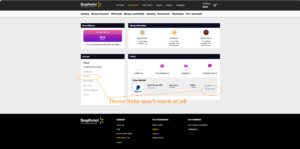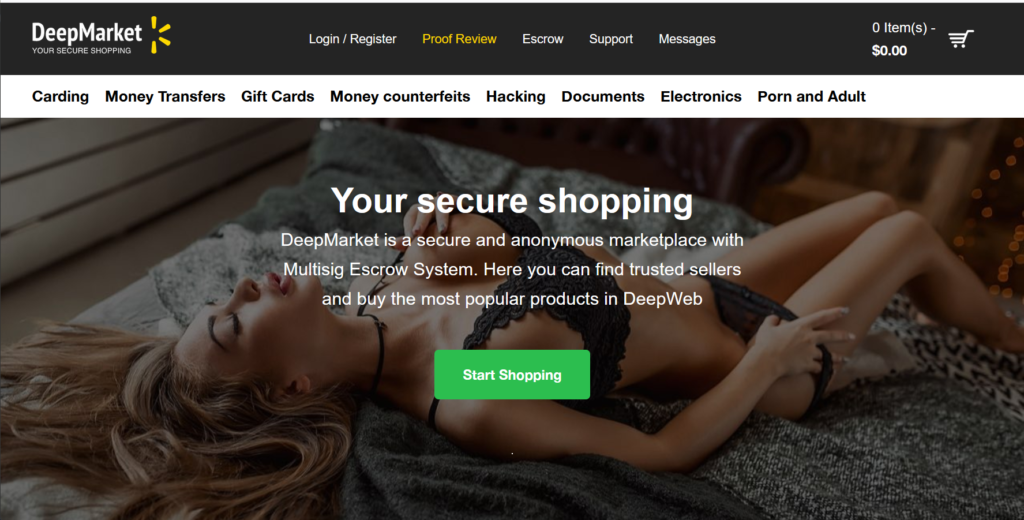Table of Contents
ToggleDeepMarket – TOR Scam Report (1)
Onion Link: http://deepmart5rrv4goqlstfa62gevyhpcgnq3hqfxcuae5ervcgk5bo5tad.onion
Scam Report Date: 2024/09/28
Client Scam Report Breakdown
Original Report Summary:
In this case involving DeepMarket, a notorious marketplace operating on the Deep Web, the user claimed that despite the platform’s promises of offering a secure transaction through its “Multisig Escrow System,” the actual service is nothing more than a front for fraudulent activity. According to the original scam report: “They promise to offer escrow services on your transaction, but once you place your orders, you soon learn that all those contact channels don’t work. Keep away from them.” This statement underlines the platform’s practice of presenting itself as a legitimate marketplace while failing to follow through on critical services that protect buyers. By falsely advertising Multisig Escrow and other buyer protection measures, DeepMarket traps unsuspecting users into placing orders, only for the buyers to be met with non-functional communication channels, leaving them vulnerable to financial loss.
Photos:

The mention of the Multisig Escrow System requires further clarification, as it is a common term in cryptocurrency marketplaces. A Multisig Escrow is a digital wallet that requires multiple private keys to authorize a transaction, ensuring that no single party has total control over the funds. Typically, this system involves the buyer, the seller, and a neutral third party (escrow service). The transaction is not finalized until all parties agree. However, in the case of DeepMarket, this safeguard appears to be purely theoretical. According to the scam report, after buyers place their orders, they are left without any support, as all the advertised contact methods fail, rendering the escrow system useless. This raises serious concerns about the platform’s intent, as it misleads customers into believing they are protected while deliberately stripping away all avenues for assistance or dispute resolution.
Moreover, terms such as “escrow” and “buyer protection” are frequently used in online marketplaces, both on the surface web and the dark web, to offer buyers peace of mind during transactions. Escrow typically refers to a third-party service that holds funds until certain conditions are met, such as the delivery of goods or services. Buyer protection, meanwhile, covers the user against various risks, ensuring they are refunded in the event of fraud or non-delivery. DeepMarket’s fraudulent activities, however, demonstrate the misuse of these terms. Instead of providing legitimate protection, DeepMarket uses these terms to lure in customers. The platform guarantees customer protection by highlighting services like “safe payment” and “24/7 Help Center,” but none of these promises hold true. The lack of functioning support and the inability to contact any party once an order is placed leaves buyers isolated, with no hope of recovering lost funds.
In conclusion, DeepMarket showcases typical scam tactics often seen in dark web marketplaces. They exploit common terminology such as “escrow” and “buyer protection” to give an appearance of legitimacy while deliberately failing to provide any real safety measures for buyers. By masking their true intent behind the facade of these industry-standard terms, DeepMarket ultimately defrauds unsuspecting users who are looking for security in an inherently risky environment. The key takeaway from this report is that despite the appearance of safety through terms like Multisig Escrow, buyers should remain cautious and recognize that these words can be easily manipulated by fraudulent actors to exploit their trust. As the scam report concludes: “Keep away from them,” highlighting the platform’s true nature and urging potential buyers to avoid it at all costs.






